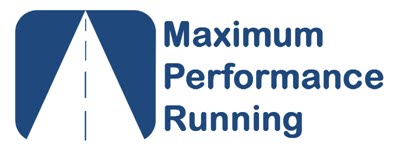Aerobic Power: think of this as a marathoner's horsepower. It is how well you can run at 4-12% faster than your marathon race pace. This category includes your lactate (or anaerobic) threshold and your VO2 Max. If runners were cars than Aerobic Power would be the size of our engine and how much horsepower we could produce. Good tests of Aerobic Power in a runner is how fast they can run at races between 15 minutes to 90 minutes in duration (or from 5k to half marathon in length). VO2 Max, Groove and Lactate Threshold workouts are all primary workouts in improving our Aerobic Power.
Aerobic Resistance: think of this as the marathoner's endurance. It is the basic endurance the runner has; their ability to run a long ways without bonking. It is built up through weekly mileage and long runs at 4% to 20% slower than marathon race pace. If runners were cars then Aerobic Resistance would be the size of their gas tank. A good test of Aerobic Resistance is how much mileage you can handle and how far your long runs are. Long runs, moderate pace or steady state runs, easy runs and increasing weekly mileage levels are all primary ways to improve Aerobic Resistance.
Specific Endurance: think of this as the marathoner's efficiency at race pace. It is the how much energy they must use in order to run at goal marathon race pace and how long can they do so. If runners were cars than Specific Endurance would be how many miles can they can go (efficiency) at a certain speed before running out of gas. It is built through running at longer distances at between 4% slower and 4% faster than marathon race pace. The ultimate test of your Specific Endurance will come in the marathon itself. Aerobic Threshold, Brisk Runs, Marathon Pace Runs, Tempo Long Run and Fast Finish Long Runs are all primary ways of improving Specific Endurance.
How strong our Aerobic Power and Aerobic Resistance are are both large factors (bases) in Specific Endurance, so for that reason the focus on building our Specific Endurance usually comes after we have worked on our Aerobic Power and Aerobic Endurance as much as we can or are going to. This is why for most people I advocate a Fundamental Phase in which we work on Aerobic Power and Aerobic Resistance (to the extent and in the proportion needed based on your specific limiting factor) before a shorter Specific Phase where we work on Specific Endurance leading up to the marathon.
A common mistake I see many runners make is getting to caught up or pre-occupied with 1 of these 3 categories and focusing on it to the detriment of the others. It doesn't do you any good to have incredible Aerobic Power (horsepower) going into the marathon if you don't have the Aerobic Resistance or Specific Endurance to utilize it (picture a race car with a huge engine but runs out of gas before the finish line). And it doesn't do you much good to focus mainly on Aerobic Resistance, building up your endurance to be able to run the long ways, but not have a powerful enough engine to be able to do it very quickly (picture a Prius in the Daytona 500).
The key is to work on each in the proportion to what it is your limiting factor in racing a faster marathon. If you have primarily been a moderate to lower mileage runner focused on 5k's and 10k's then your Aerobic Power is probably high and your limiting factor will likely be in terms of your Aerobic Resistance and Specific Endurance. But if you are someone who runs lots of mileage and long runs but does little to no speed work and tempos, then your Aerobic Resistance is probably high and your Aerobic Power and Specific Endurance is probably your limiting factor.
The faster you want to run a marathon the higher and closer to your ultimate potential each category needs to be, so you can't afford to ignore any category. Weakness in one area will ultimately hold back how fast you can race. So as you and your coach plan out your next marathon training cycle, talk about what your limiting factors are that keeping you from running a faster marathon, then be sure that you arrange your schedule to get extra work on that area in during your fundamental phase. It will lead to a faster marathon and happier you. :-)
Happy Running,
Coach Mark Hadley


Much more concise and understandable than reading Canova.
ReplyDelete